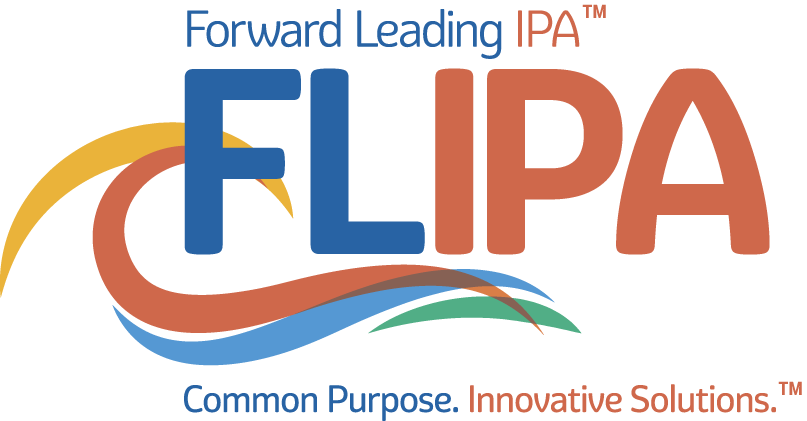Programs
Using technology and pilots to collaborate and improve care for our patients.
Expanding Access to Healthy Food
Forward Leading IPA (FLIPA) understands the impact of social care needs on overall health. Our mission is founded on the vision that the integration of primary care, behavioral health and social care is essential for improving the overall health and wellness of individuals and their families. FLIPA is committed to partnering with our member organizations and community-based organizations to address social care needs.
FLIPA Patient Consent Process
Patients signing the consent form will allow FLIPA and its participating provider organizations to improve the integration of physical, behavioral health and social care, and will help healthcare providers improve coordination and quality of care. It is a significant step in FLIPA being a clinically integrated network.
The patient consent form that FLIPA members are using was developed in consultation with an attorney knowledgeable in 42 CFR Part 2. Obtaining patient consent will enable FLIPA members to see data for shared patients.
Garage (Bridge platform): A Population Health Management System
When it comes to healthcare, protecting personal health information is critical. And, while traditional EMR systems are secure and protect privacy, they tend to exist in isolation. In order to offer the most comprehensive care, every provider needs to know more about patients, such as their prescriptions and their mental health status.
Prioritizing Integrated Care: The Integrated Acute Contact Team (i-ACT) Model
FLIPA developed the Integrated Acute Contact Team (i-ACT) approach building on the success of a Behavioral Health/Primary Care integration pilot in 2020. The i-ACT solution addresses the need for a system of care that can best improve outcomes for and reduce preventable costs of individuals with acute physical health, mental health, substance use, and social care needs.
This innovative solution brings together Care Coordinators from primary care and behavioral health settings serving the same patients to function as one shared treatment team across organizations. I-ACT leverages FLIPA’s population health analytics to risk stratify individuals along with a set of integrative standards of care to improve effective outreach, facilitate efficient care coordination, and reduce barriers to access and engagement for individuals.
Programs and relationships
NYS Office of Rural Health—Addressing concerns in rural areas is core to FLIPA’s mission. This partnership is focused on rural areas’ network capabilities. The Office of Rural Health is supporting our work through a state grant.
Value-Based Care—FLIPA members are working together and with our communities to improve population health and manage costs for the Medicaid, HARP and Medicare populations.
Finger Lakes Performing Provider System (FLPPS)—FLIPA and FLPPS are collaborating on a Delivery System Reform Incentive Payment (DSRIP) program to reduce avoidable hospital use by 25 percent over five years. The partnership is funded through a System Transformation and Community Investment (STACI) grant.
Bright Start Connect
Bright Start Connect by FLIPA strives to help young children (from birth to 8 years old) thrive by providing caregivers and providers access to early childhood resources and services. The aim is to boost the health and well-being of little ones by empowering families and professionals alike within upstate New York. Bright Start Connect offers web-based videos and tools curated by licensed experts to support parents and caregivers with questions about their child’s behavior, sleep, eating habits, language development, and more. Additionally, Bright Start Connect hosts parenting groups and one-on-one virtual support sessions with licensed clinical psychologists who specialize in early childhood development for families needing extra assistance. This program also extends its support to pediatric primary care teams and early education/childcare settings through training and consultation. By translating evidence-based best practices from the latest research, Bright Start Connect hopes to strengthen the systems that assist families and foster resilience and positive development in young children, all while addressing child health needs. Bright Start Connect is made possible through a Project LAUNCH (Linking Actions for Unmet Needs in Children’s Health) grant, funded by SAMHSA (Substance Abuse and Mental Health Services Administration).
Bright Start Connect focuses on four key goals:
Goal 1: Share resources with families and professionals on infant and early childhood mental health practices, prevention, positive behavior strategies, support and consultation
Goal 2: Increase access to screening to identify needs
Goal 3: Improve education for primary care, early education/childcare providers
Goal 4: Establish multi-level behavioral health supports, increase access to services through partnerships and simple referral systems

What will help Behavioral Health most is to work with us and for us to work with them to identify those complicated patients and involve us in stabilizing those high-risk patients and delivering them back to them. And having us as part of that system, both in terms of collaboration, communication, and compensation—all the things that need to happen for us to be working as partners, heading to the same goal.
